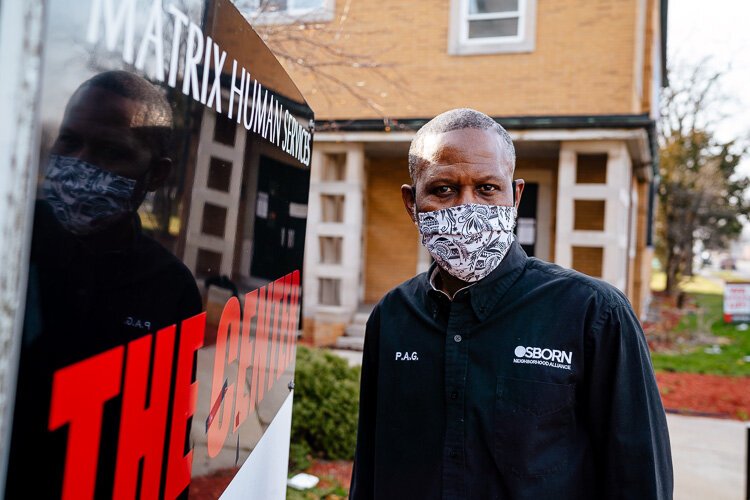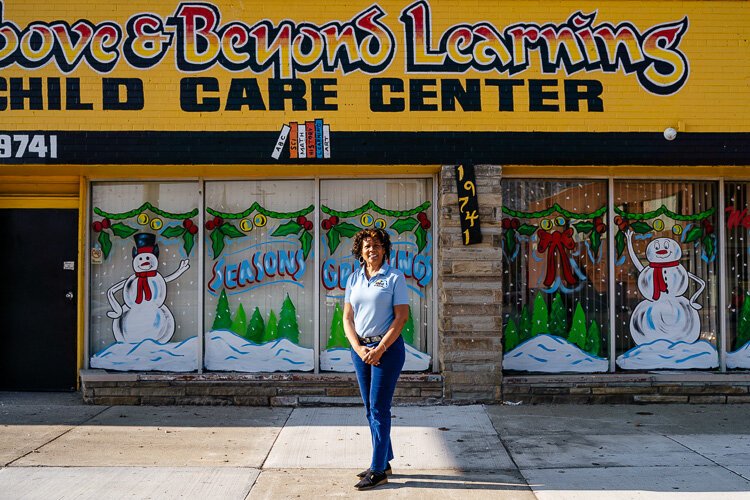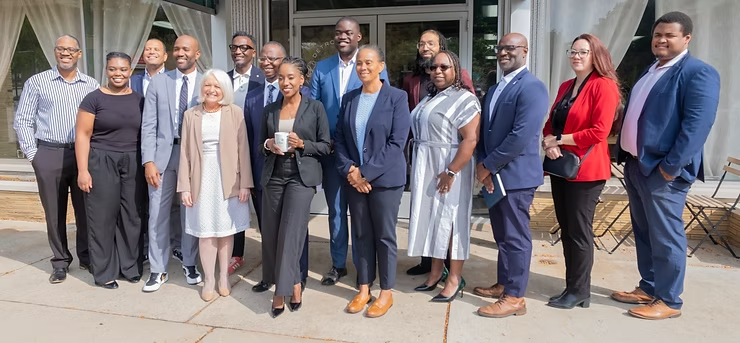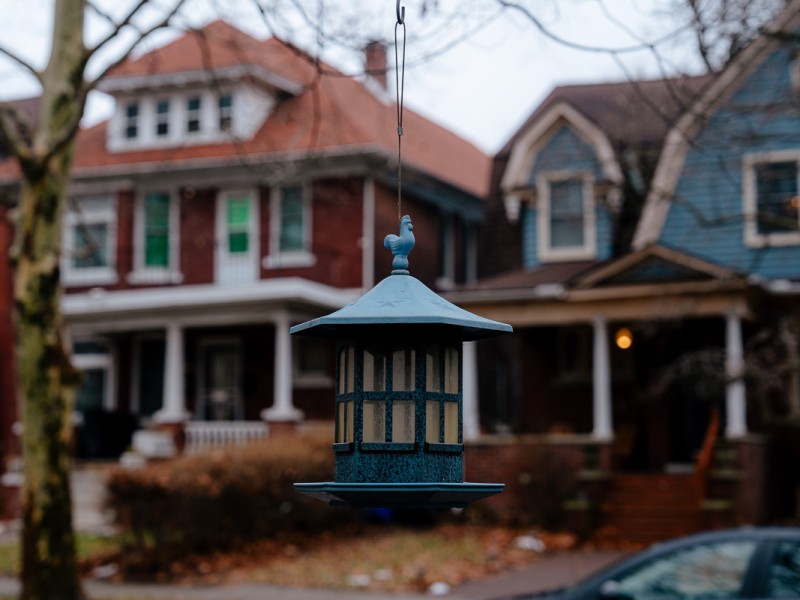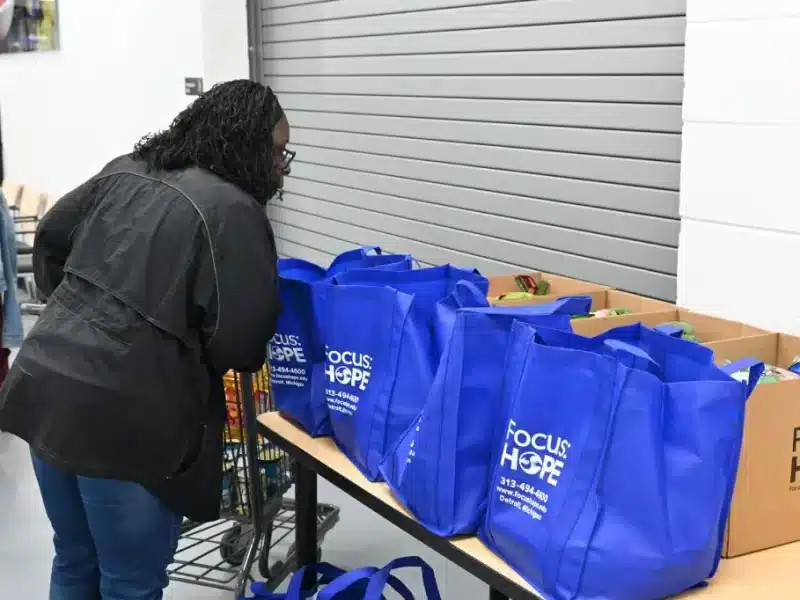Business association offers support to local entrepreneurs in hard-hit Detroit neighborhood
Nina Hodge was forced to rethink her east-side Detroit childcare business from the ground up earlier this year when the pandemic hit Southeast Michigan.
Hodge runs Above and Beyond Learning Center, which is located in the Osborn neighborhood. Founded in 2005, the child care center provides supervision and programming for children from 6 months to 13 years of age.
As a result of Gov. Gretchen Whitmer’s executive orders at the start of the outbreak, she had to shut down her business from
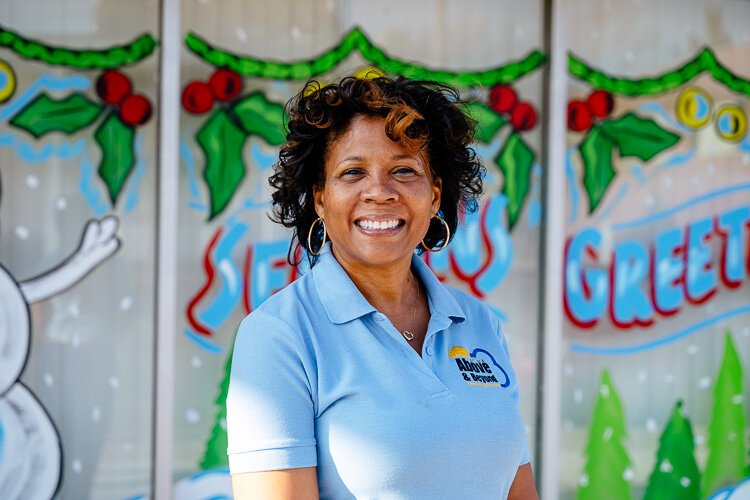
March to June of this year. The child care service operator used that time to figure out how to respond to the new situation and make the necessary changes that would allow her to run her business again in a way that would keep her employees and the children they serve safe and healthy.
“I was here in May meeting contractors to change our floors around, putting in plexiglass for the safety and health of everybody, making sure we had enough PPE stuff here, masks and hand sanitizers, all that kind of stuff,” she says.
Hodge also put new protocols in place. Parents now stay outside the learning center at all times and use an app to determine whether their kids are safe to enter. As a further precaution, kids’ temperatures are taken before admitting them to the center.
On the inside, triangles are now marked on the floor to keep children socially distanced. Although that’s a term Hodge doesn’t use that term with the younger children, since it’s not something they typically understand.
“They don’t know social distancing, so what you teach a child is personal space,” she says. “We’re also showing them age-appropriate [information] about germs and how to wash their hands.”
Despite these changes, enrollment at the center has dropped since the pandemic started. While Above and Beyond once tended to around 60 kids, it now takes care of only 20. Hodge says she’s facing a number of setbacks.
First off, COVID-19 created a lot of confusion. She feels like she’s been sent back to square one when it comes to marketing her business. So she’s had to reach out to let clients know the child care business is open again as well as educate parents about the steps she’s taking to keep kids safe.
And though Hodge is thankful to have a dedicated staff on-hand, like most businesses, there’s still a labor shortage in terms of recruiting new people; a lot of potential employees are reluctant to go to work in a frontline industry like hers right now because they’re worried about the coronavirus.
Beyond that, although the state of Michigan has budgeted tens of millions of dollars to assist with child care services, Hodge is frustrated with how subsidies are being administered, as well as the general unpredictability of the pandemic.
“We’re essential workers. We’re frontline workers” she says. “I wish we didn’t have all these fluctuations. How do you look at your budget, when it’s [constantly] fluctuating?”
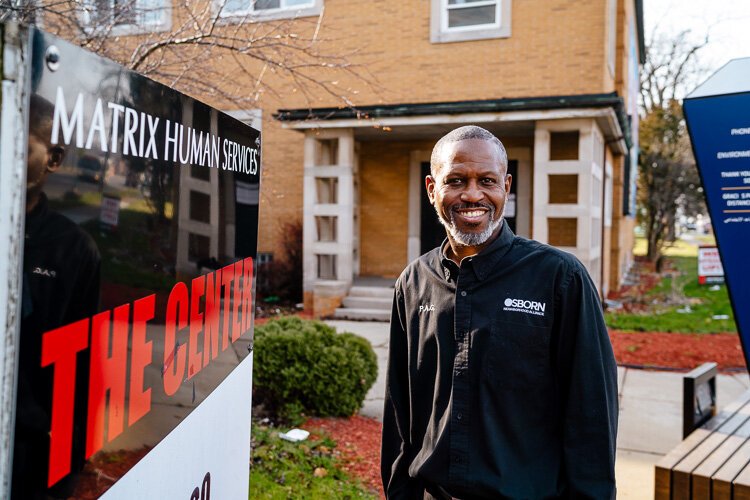
Building up business in Osborn
These and all other uncertainties tied to the pandemic have made it difficult for small business owners like Hodge to plan for the future. But, in spite of all that, she’s thankful these last few months to have had the help of the Osborn Business Association (OBA). A division of the nonprofit Osborn Neighborhood Alliance, OBA is dedicated to building and developing businesses in Osborn.
“They have been helping with grants way before this COVID stuff,” says Hodge. “Grants, new ideas, making sure to introduce us to financial people, Paul always puts that stuff in front of you and makes sure you’re growing.”
The Paul she’s speaking of is Paul Garrison, OBA’s business manager. Garrison came on board with the organization in 2015 and oversees its efforts to assist local businesses.
“We specialize in helping entrepreneurs and small business owners go from the informal economy of everyday hustling to a formal economy, so they can be a solidified properly-run, properly-structured operation,” says Garrison.
OBA is probably best known for its six-week Osborn Business Cohort Program, which provides a comprehensive training course for small business owners and entrepreneurs. With the help of partners like the Miller Canfield Law Firm, Accounting Aid Society, and Foodlab Detroit, the program’s workshops educate participants how to do things like develop a business plan, handle accounting and taxes, tackle legal requirements, and effectively market their products or services. The program just graduated its 21st cohort in October.
Beyond these workshops, the association also provides support and resources to local businesses, both established and brand new, and provides a framework for business owners to network and collaborate.
Since its founding in 2012, the association has grown from just three members to 158 and has leveraged more than $6 million in capital funding for its small business owners.
It’s been so successful, in fact, that the Community Foundation for Southeast Michigan’s New Economy Initiative, which funds the association, has expanded its original footprint to include underserved neighborhoods across Detroit.
The primary focus of OBA, however, is still very much in the Osborn neighborhood and surrounding areas. Right now, roughly 20 of the association’s businesses are in Osborn, an area whose boundaries fall between Eight Mile Road to the north, East McNichols Road to the south, Van Dyke Avenue to the west and Gratiot Avenue to the east; and more than half of its members are based in Northeast Detroit.
According to Garrison, Osborn has been “one of the hardest hit areas in the city of Detroit” in terms of crime, poverty, and disinvestment.
“There was a time 30 to 40 years ago when it was a middle-class neighborhood,” he says. “Then the automotive manufacturing industry fell apart, and there was urban flight and then the mortgage foreclosure crisis in 2007 or 2008. The neighborhood was devastated.”
Despite the hardship, though, small businesses persevere in Osborn.
The community’s main business district is the G7 commercial corridor, an area that encompasses parts of Gratiot Avenue and Seven Mile Road. Beyond that, there are also smaller commercial strips active along Van Dyke Avenue and on Eight Mile Road near the Bel Air Luxury Cinema movie theater.
G7 is one of several commercial corridors in Detroit now receiving attention and investment as part of the city’s Neighborhood Framework Initiative. As a result of that designation, Fifth Third Bank has committed $5 million — $1 million a year over five years — to Detroit’s Strategic Neighborhood Fund to help revitalize the area. OBA is actively working with the city on the project. While the specifics of how that money will be spent are still being determined, more details should be announced next month, when the effort enters its implementation phase.
While that investment is certainly a glimmer of good news for Osborn, local business owners are still struggling to come to grips with the challenges created by COVID-19. And because of the many deep-rooted issues the community faces, Garrison feels that small businesses in the neighborhood have had a tougher time adapting to the crisis.
“With COVID, they do have a greater challenge,” he says. “There is a lot more adversity they have to deal with, because they don’t have as much access to resources as some of the other areas of Detroit.”
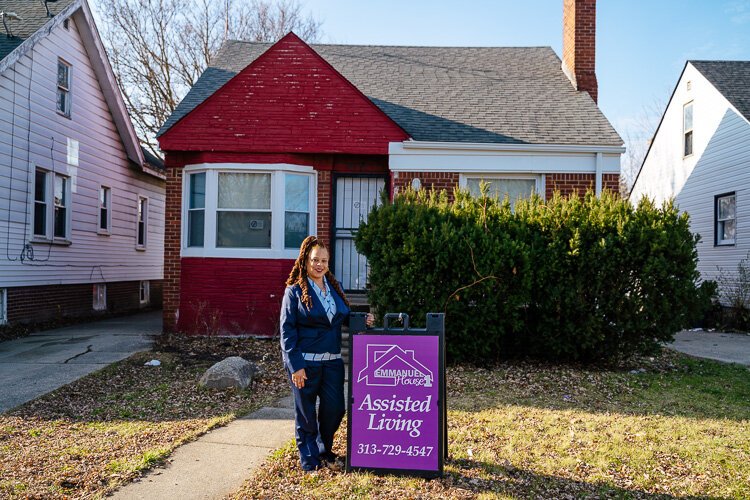
A process of adjustment
Renee White has certainly had her hands full responding to the new business environment ushered in by COVID-19.
She owns and operates two faith-based assisted living facilities, Emmanuel House 1&2, in Osborn. And up until the pandemic hit, she also ran an adult day care program in the neighborhood.
Located on Hickory Street, not far from Gratiot Avenue and East McNichols Road, the care facilities are geared toward veterans; seniors; people returning from incarceration; recently homeless people; those with mental, emotional, or physical disabilities; and people who use substances excessively. White and her staff are dedicated to assisting the 27 residents who stay there, not just with their living situation, but also in regaining their self-respect, dignity, confidence, and, as much as possible, their independence.
In addition to lodging, Emmanuel House provides residents with meals, hygiene and cleaning assistance, and 24-hour care and supervision. Up until recently, staff also arranged for doctors, nurses, optometrists, and physical and occupational therapists to visit the facilities to treat those who live there.
“I’m still adjusting,” she says. “Our outside caretakers and our day program, unfortunately that had to come to a halt. And as far as people, that has been a challenge too, because they’ve been in the house, not being able to go out, and no one’s coming in.”
In effort to give residents something to do, the staff has been sponsoring activities like bingo. In addition to cabin fever, health care and treatment have been issues too. Since outsiders aren’t allowed in Emmanuel House buildings right now, the facilities have had to switch to telehealth. That’s taken some time to work out, though, because not all the residents own their own smartphones.
While it’s been hard coping with all the changes, White is grateful for the assistance she been getting from OBA. The team there has been helpful in getting her access to PPE and grants. Since she’s also been on the lookout for a new building to expand into, the association has put her in touch with the Detroit Land Bank Authority and is helping her to facilitate that process.
“Paul Garrison and the whole team there are awesome,” she says. “Anything that’s needed, as far as with people, they help. They refer people to us, and I refer people to their program.”
Just before COVID-19 struck, White obtained a license to run a bingo hall. Although she’s not sure when the pandemic will end, the Emmanuel House house operator is certainly looking forward to the day she and her staff and residents can start moving forward again.
“When the center does open, we’ll do it gradually. Opening up for our in-house people first, then testing and letting people come in after cleaning their hands and taking temperatures,” she says. “[And] once we get through this we’ll be able to open up the bingo hall.”
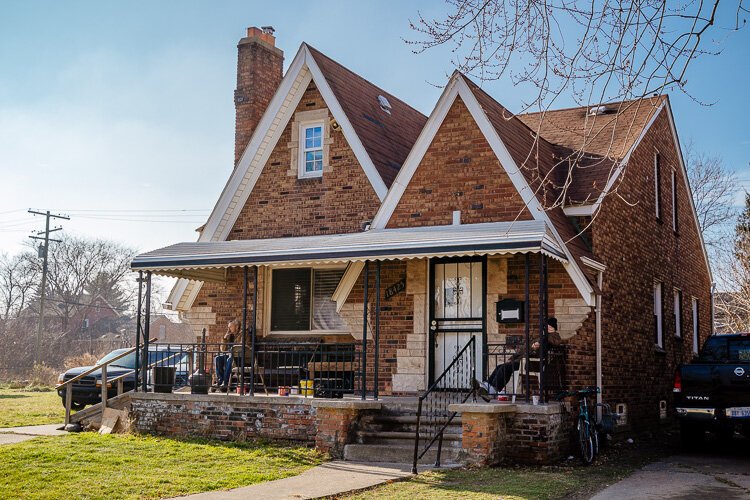
A natural shift
For Kylah Washington, the pandemic has been less of an adjustment, but getting used to it has still taken some time.
Her business is called Joy of Life Educational Solutions. It’s an adult education school that offers workshops in a variety of different areas, including child care training, CPR/first aid, and parenting skills.
The business came into being in 2018, as the byproduct of another nonprofit Washington runs called the Joy of Life Foundation, which provides support to families with special needs children.
“I have a child with special needs,” says Washington. “I couldn’t find the resources and the help that I needed in the community, so my husband and we started helping other parents in the community. We fulfilled that need and then one business opportunity led to the next and the school started.”
Running a school certainly makes sense for the married couple. Washington has a master’s in educational leadership and a bachelor’s in business management, and her husband is an autism therapist and a behavioral coach.
After the word got out about her foundation, schools in Southeast Michigan began reaching out to her for help developing individualized plans for special needs students. The Washingtons eventually established their own school and later branched out into different areas like offering court-sanctioned parenting classes.
OBA proved to be a lot of help in getting Joy of Life Educational Solutions up and running. Washington, who took part in its 18th cohort, received assistance keeping her books, doing her taxes, and doing surveys to assess community needs. Up until the pandemic started, her business even held classes in the Matrix Human Services building where OBA is based.
While the arrival of COVID-19 was certainly a surprise, it wasn’t too difficult for Washington to pivot, though.
“I was already teaching online and doing virtual classes.” she says. “So, for me, it was a natural shift, because that’s what the community needed. I was very flexible.”
Joy of Life went from teaching online two days a week to doing it full time via Zoom. Since the pandemic began, her business
“I’m looking forward to going back to in-person, but I have to go where the clients are.”
has even jumped up a little bit, something she attributes to the current demand for online schooling.
Looking toward the future, Washington isn’t exactly sure how she’ll proceed with the school, if and when COVID-19 starts winding down.
“I’m looking forward to going back to in-person, but I have to go where the clients are,” she says. “I never knew that it would be this big, but [online classes] are working out, so we’ll have to consider our clients’ needs.”
As for OBA, they’ve been very busy of late. The business association’s workload has tripled since the pandemic started, due to all the challenges and barriers its members are facing right now. But Garrison understands just how important his organization’s efforts are for businesses in Osborn.
“You don’t get the support and resources that you get in Midtown, Corktown, or New Center over here,” he says. “That’s why it has been important for us to leverage resources for the community. We’ve done that and we’ll continue to work on that, because there’s a lot more work to do.”
The Osborn Business Association will have its next monthly meeting on Dec. 17 and will be launching its next series of Osborn Business Cohort workshops in January. For more information, contact OBA.
All photos by Nick Hagen.
Resilient Neighborhoods is a reporting and engagement series that examines how Detroit residents and community development organizations are working together to strengthen local neighborhoods. It’s made possible with funding from the Kresge Foundation.
